
Set Up the Welfare of Your Family After Your Sudden Passing by Creating a Trust Agreement with Template.net’s Free Sample Template Form and Documents. Create a Legal Living Will that Sets Up Your Mortgage, Real Estate, Land, and Every Personal Property You have. Take of Your Family, Download Today!
Get Access to All Agreements Templates Instant Download
Trust Agreement Template
Service Agreement Template
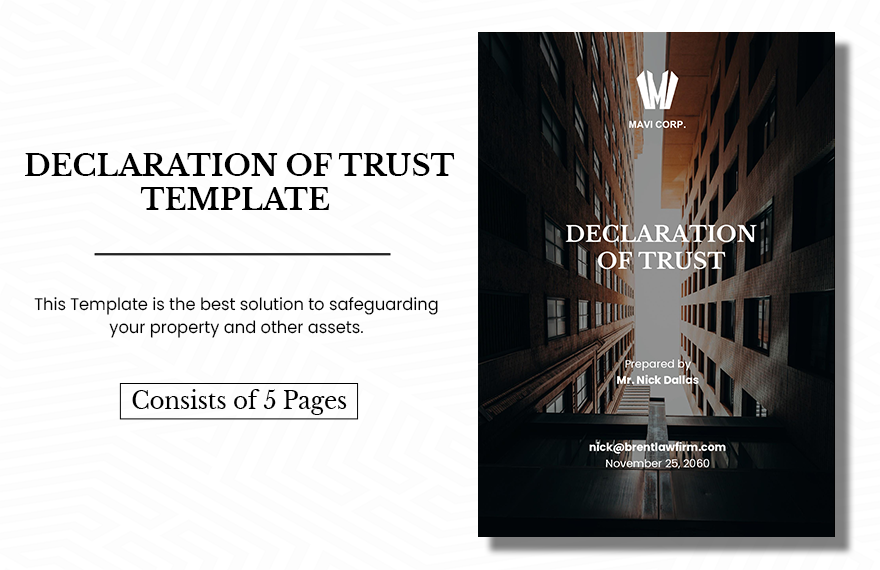
Declaration of Trust Template

Simple Agency Agreement Template
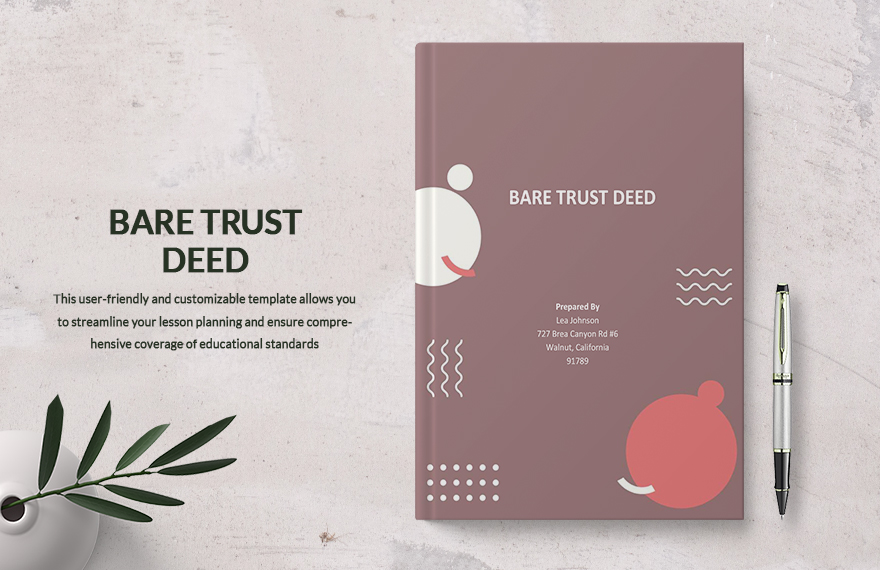
Bare Trust Deed Template
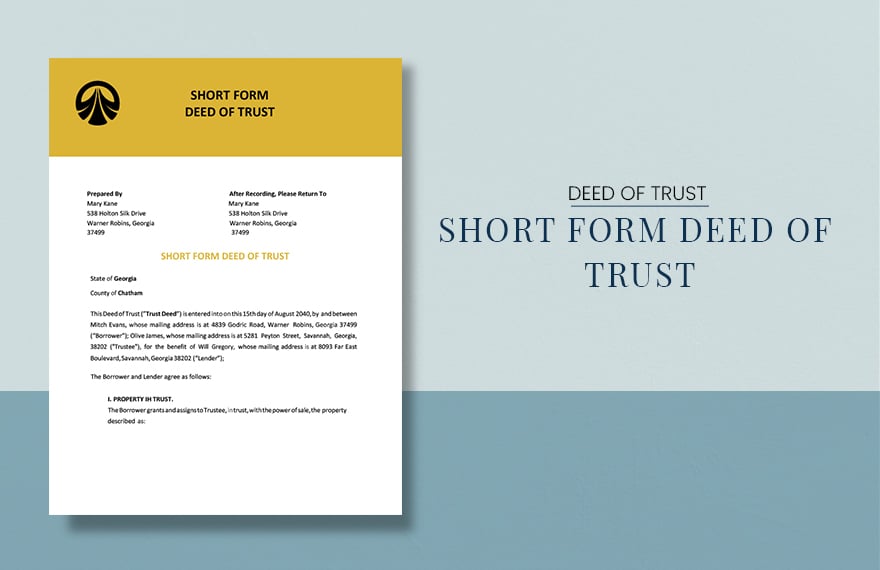
Short Form Deed of Trust Template
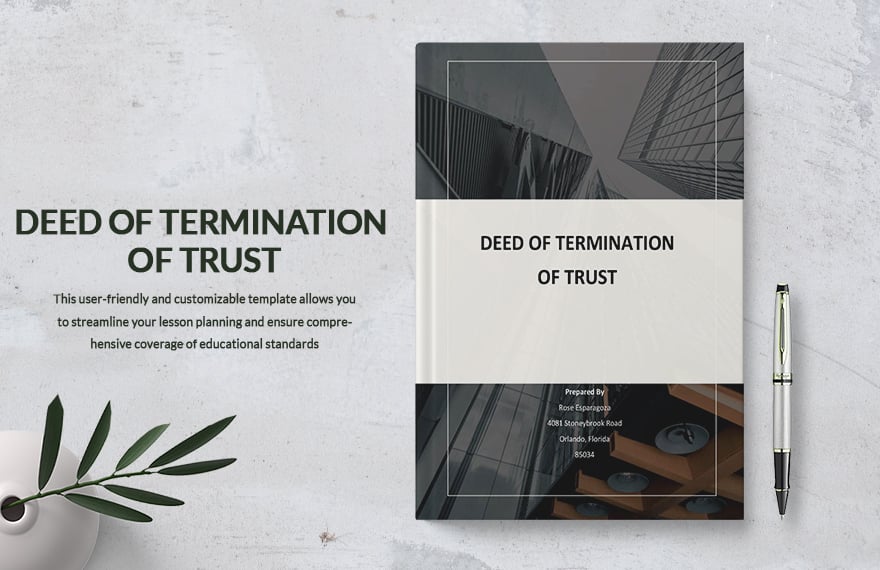
Deed of Termination of Trust Template
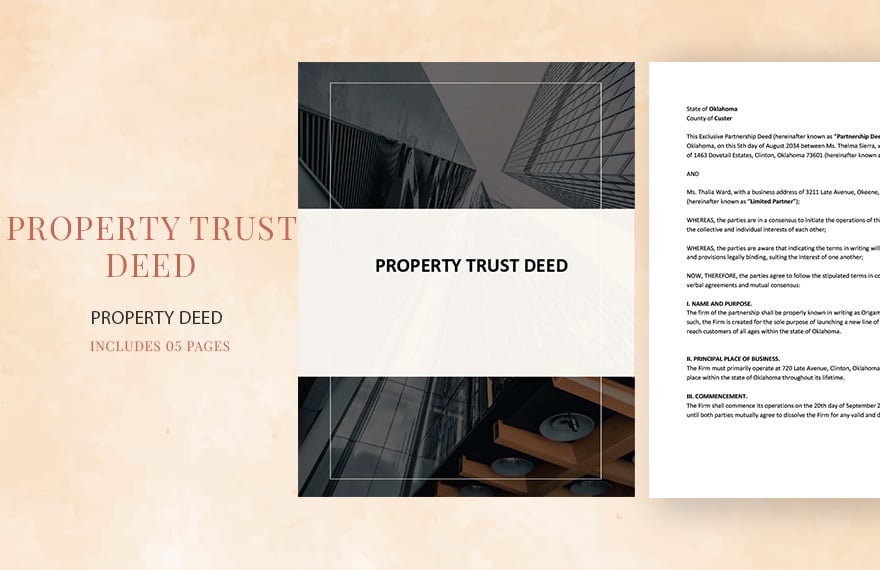
Property Trust Deed Template
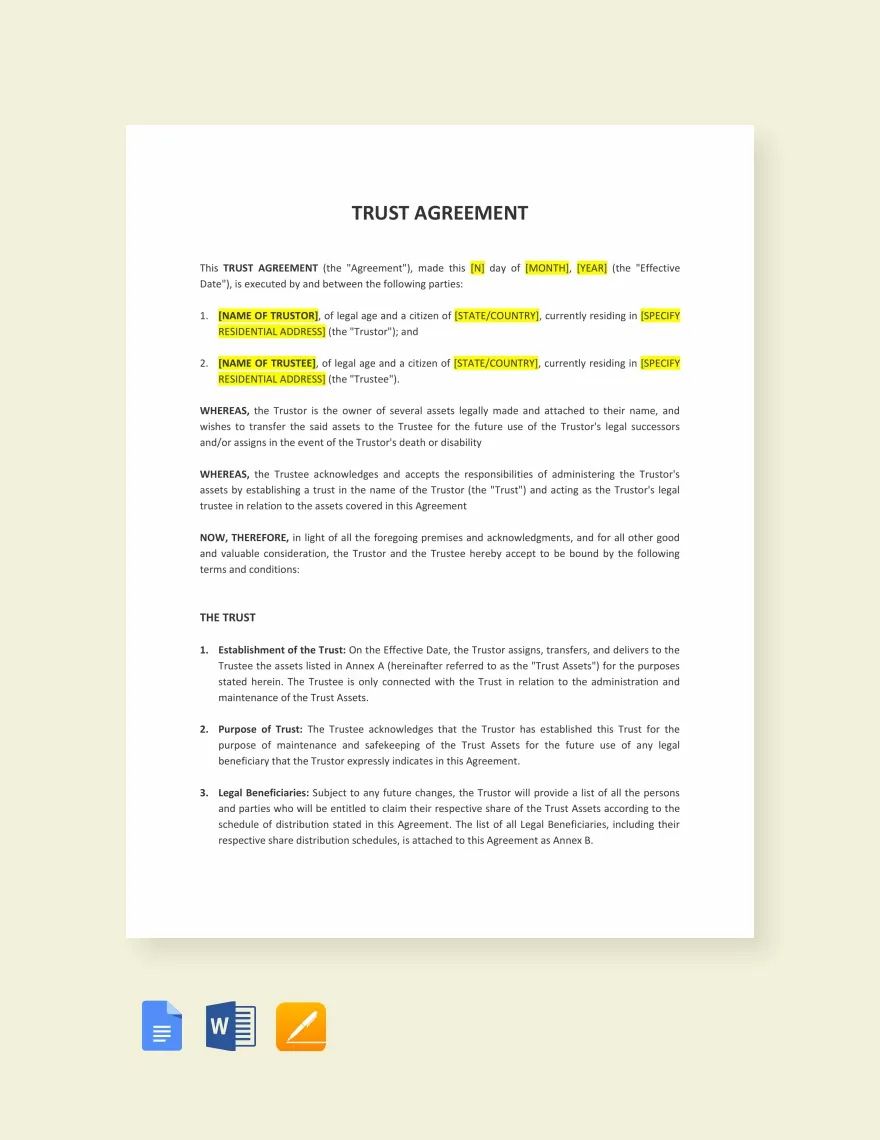
Trust Agreement Template
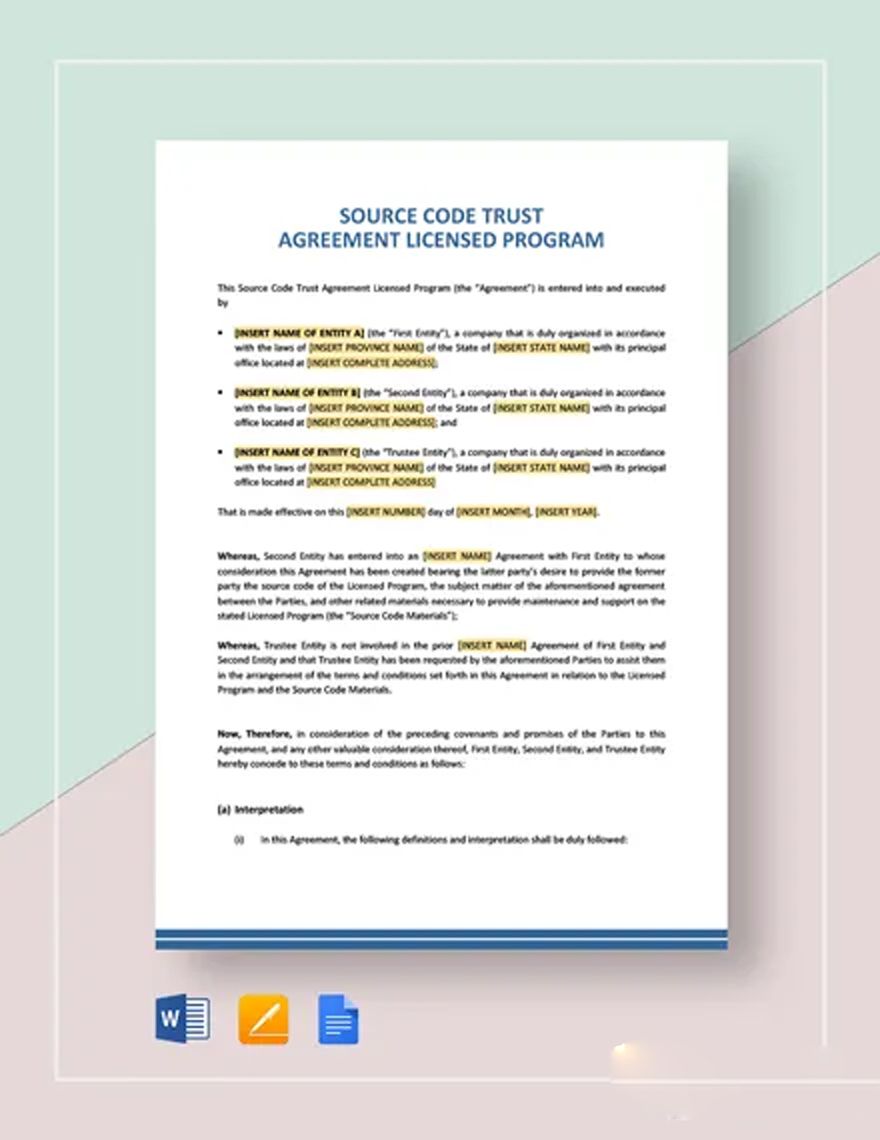
Source Code Trust Agreement Licensed Program Template
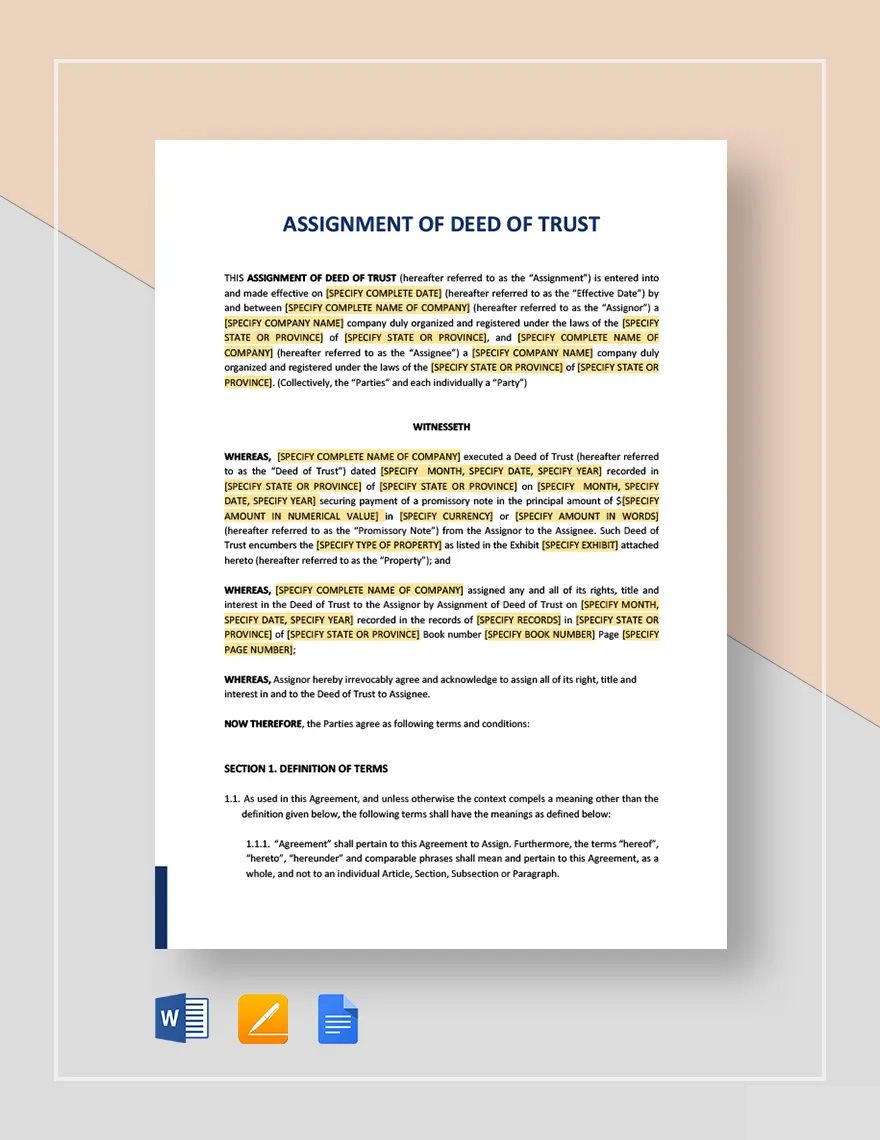
Printable Assignment of Deed of Trust Template
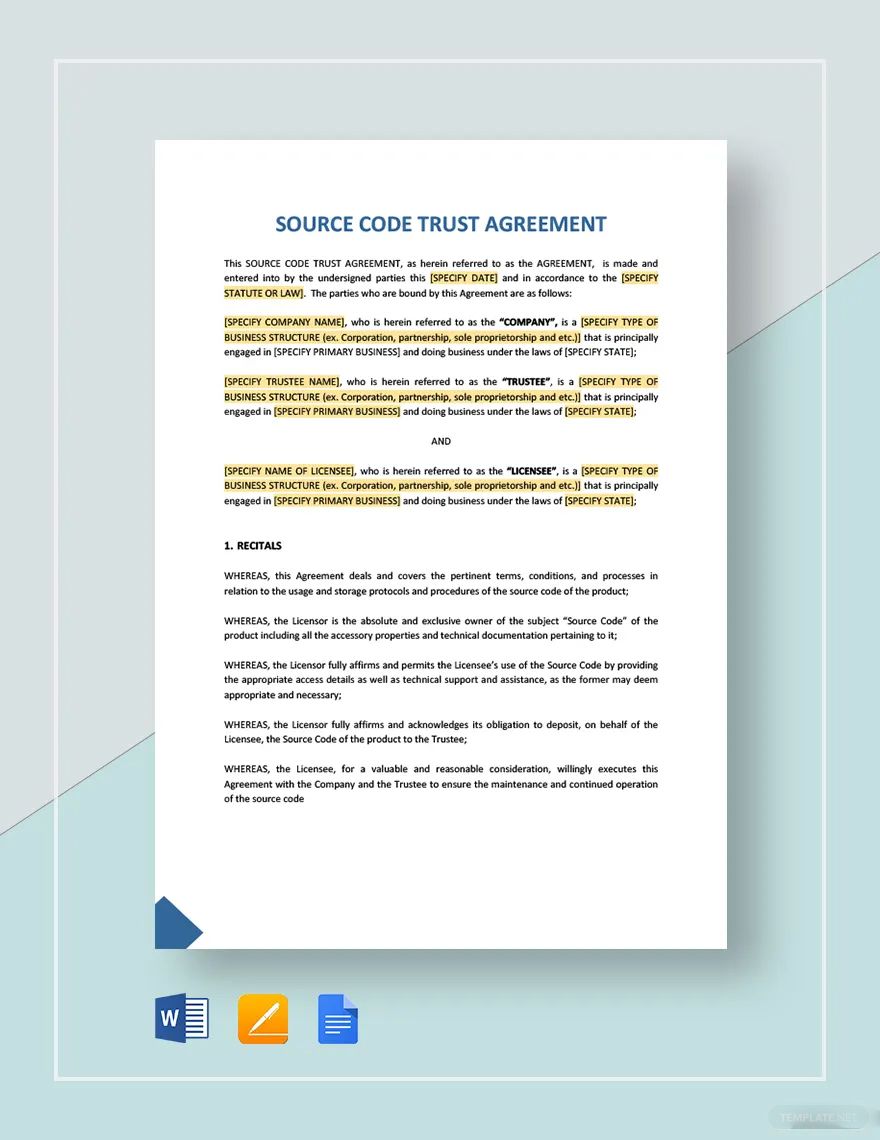
Source Code Trust Agreement Template
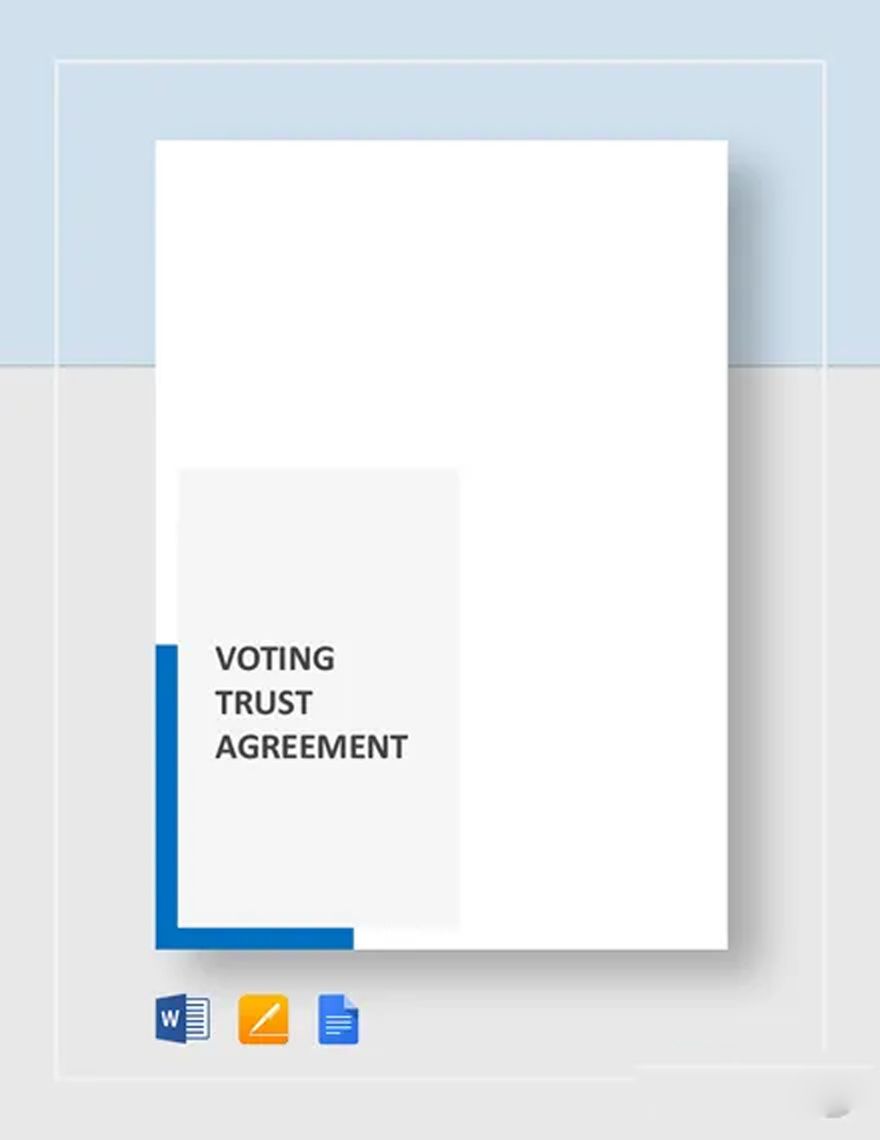
Voting Trust Agreement Template
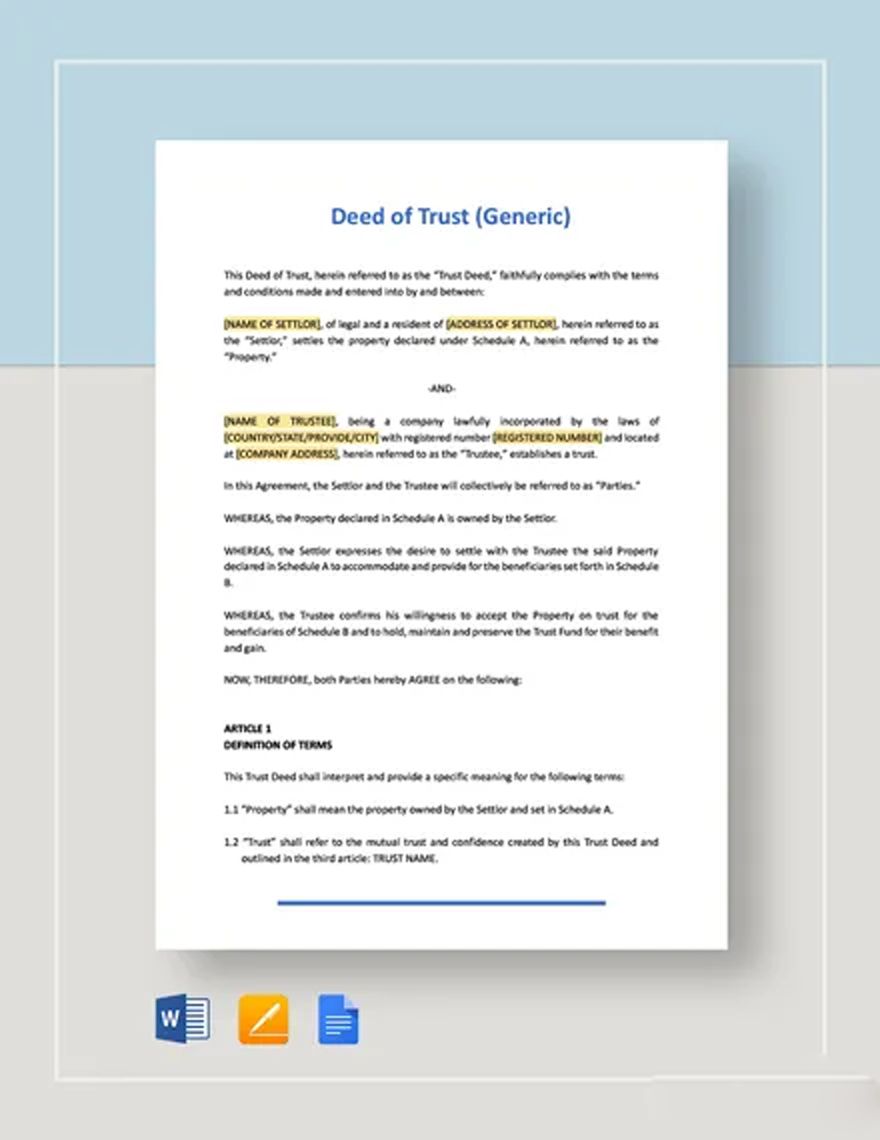
Printable Deed of Trust Template
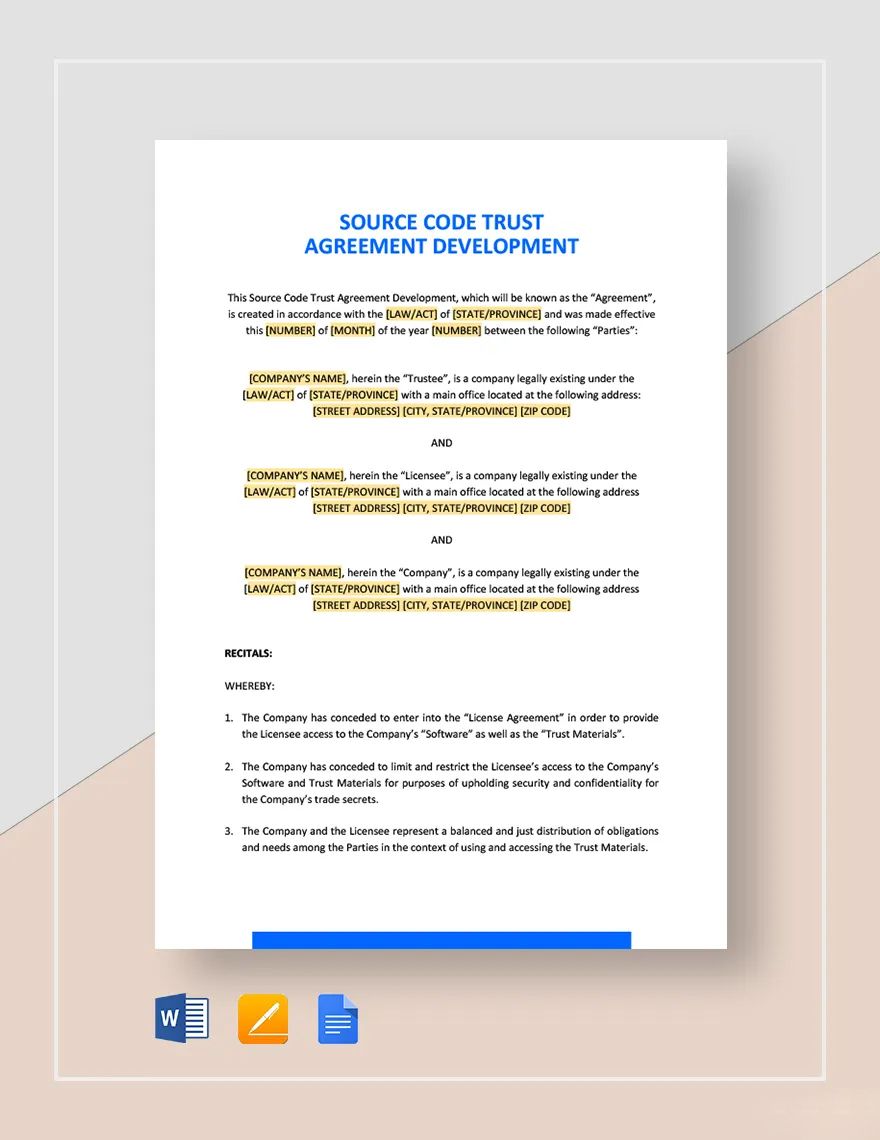
Source Code Trust Agreement Development Template
Make sure that your money and the rest of your assets are well-protected and distributed equally through having a trust agreement. Choose our ready-made Trust Agreement Templates that are professionally written to give you high-quality content. These templates are 100% customizable that will make it easy for you to edit and personalize the samples. Securing a trust agreement for beneficiaries and trustees over your assets will be easier using our printable trust agreement. What are you waiting for then? Subscribe and start downloading these templates now!
A trust is a formal and legal agreement which a trustor, the person setting up the trust, entrusts the ownership rights of one or more assets to different trustees. The trustor does so for preservation and protection on behalf of the beneficiaries of the trust.
This written document would normally state the imposed rules that you want to be followed by the trustees. This document includes the purpose of the trust, details of the assets, the powers and limitations of the trustees, and their compensations if there is any. Common objectives of trust agreements are to reduce the estate tax liability and to avoid probate. A trust agreement that involves a real estate will need an exact description, the trustor's written consent, and authorized signature for the agreement to be valid. Wills that are admitted to probate can also act as a trust agreement. These wills can be called as a trust deed, trust document, or trust instrument.
There are various types of trust: [1] Living trust is made by the trustor and managed by a trustee who has the legal duty to take care of the trust and makes sure it falls on the best interests of the beneficiary. [2] Testamentary trust is established in the last will and testament of a person naming the trust as the beneficiary. [3] Revocable trust is a trust where provisions can be changed or canceled by the grantor. [4] Irrevocable trust is the opposite of the revocable where provision cannot be altered or canceled. It is essential that you know the difference between these trusts so that it will be easier for you to choose one that works best for you. However different these trusts are, they have similar things that should be written on the agreement. We have listed those points below.
When you say assets, it can be anything from tangible items like houses, cars, and pieces of jewelry to intangible items like stocks, trust funds, and life insurance policies. List them down to give a clearer picture of the assets that you would like to distribute.
Make sure all the paperwork such as titles, deeds, and stock certificates are ready to hand over to your attorney. This will enable your attorney to easily transfer assets once your trust will be put into action.
Beneficiaries are the ones to receive all your assets. Family and friends are the typical beneficiaries, however, your beneficiaries can also be non-profit or business organizations. Also, you can discuss with your lawyer if you don't want someone to get any advantage from your assets.
A trustee will be the one to handle your affairs once you are incapable of handling it. A trustee is trusted to make the decision for the beneficiary's best interest. They will pay debts and distribute your assets according to your trust's instructions.
In case that you will be leaving a minor, you can designate a guardian for the minors in your trust. You can state until what age will that guardian be taking care of that minor.